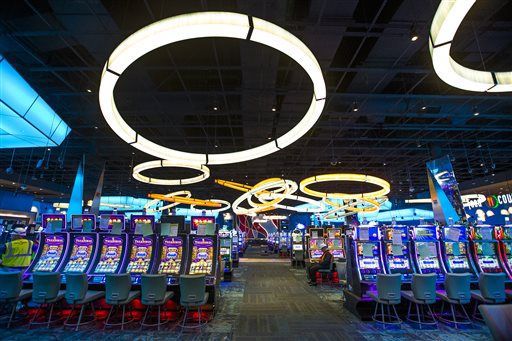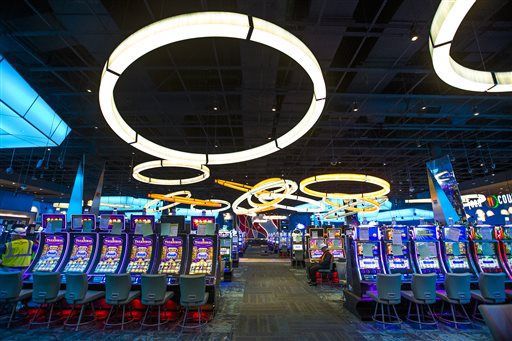PHOENIX — A Southern Arizona tribe opened the doors of its long-planned casino on Sunday, but the sprawling Phoenix-area property will be missing a key component — casino games.
The Tohono O’odham Nation unveiled its new Glendale-area casino despite lacking the necessary certificates from the Arizona Department of Gaming. State officials refused to issue a certification for Desert Diamond Casino West Valley.
As a result, there won’t be any high-roller table games involving a dealer, such as blackjack. Guests looking to play slots will instead see bingo-style games that look like slot machines. The bingo-style games fall under Class II gaming. Table games are Class III.
The Gaming Department has not approved Class III activities because its gambling compact with the tribe was not “validly entered” under the Indian Gaming Regulatory Act, a department spokeswoman said.
In an April 8 letter, Gov. Doug Ducey told Gaming Department Director Daniel Bergin that the tribe engaged in fraud because it didn’t disclose its plans for a casino in the Phoenix area while negotiating a gambling compact. He also said the state might consider canceling its entire gambling compact with the tribe.
The state argues that the voter-approved 2002 compact barred the construction of new casinos. The tribe unveiled its plans for the massive resort and casino near University of Phoenix stadium — where the NFL’s Arizona Cardinals play — in 2009. The tribe purchased the site after receiving a $30 million federal settlement to replace nearly 10,000 acres of ancestral tribal land damaged by a dam.
A federal judge denied a request from the tribe in September to issue an injunction compelling the state to stop blocking the casino. According to the ruling, the tribe failed to show it would suffer irreparable harm because it will generate revenue with the bingo machines. But the judge allowed part of the tribe’s lawsuit to proceed.
Attorney General Mark Brnovich, a former state Gaming Department director, said the casino could imperil the entire agreement allowing Indian gambling in Arizona.
“I will just say generally that I do think that if that casino opens in the West Valley, it is a game-changer, and I think it does undermine the promises that were made to Arizona voters that gaming was going to be limited and well-regulated,” Brnovich said.
Carl Braunlich, an associate professor at the International Gaming Institute at the University of Nevada-Las Vegas, said it’s not uncommon for a tribal casino to operate without the high-stakes games one would expect at a Vegas casino.
“Tribal casinos operate successfully all around the country without Class III gaming, without table games,” Braunlich said. “If they offer restaurants and entertainment and bars and retail — something other than just convenient gaming — then they’re going to be fine.”
No matter how much the state may oppose a casino, there is very little it can do, he said.
“The fact is, tribal gaming on tribal land is a federal issue, not a state issue,” Braunlich said. “The state, even though it feels its authority is being impugned, the way the laws are stated ... the state has to keep its hands off.”
For the tribe, the opening marks the end of a long road.
Tribal Chairman Edward D. Manuel called it “a great day” for the Tohono O’odham Nation and the state. He believes the casino will prosper, even without Class III games.
“We are confident that this facility will be an enormous success for the region, and we are eager to keep moving forward,” Manuel said in a statement. “Obviously, once we succeed in the litigation with the state, we will work to implement Class III.”
The project has faced opposition from state and federal officials since it was announced in 2009. This year, the U.S. House and Senate introduced legislation aimed at stopping the project. The bill would have prohibited construction of any new tribal casino on unincorporated land in Maricopa County not next to an existing Indian reservation, but failed to go anywhere.
The tribe, whose reservation covers much of Pima County, has won a series of court cases. A federal judge ruled in 2013 that nothing explicitly barred another Phoenix casino, a decision the state is appealing. A federal appeals court ruled last month that a 2011 state law designed to block casino plans was unconstitutional.
The city of Glendale backed the casino after years of litigation.





